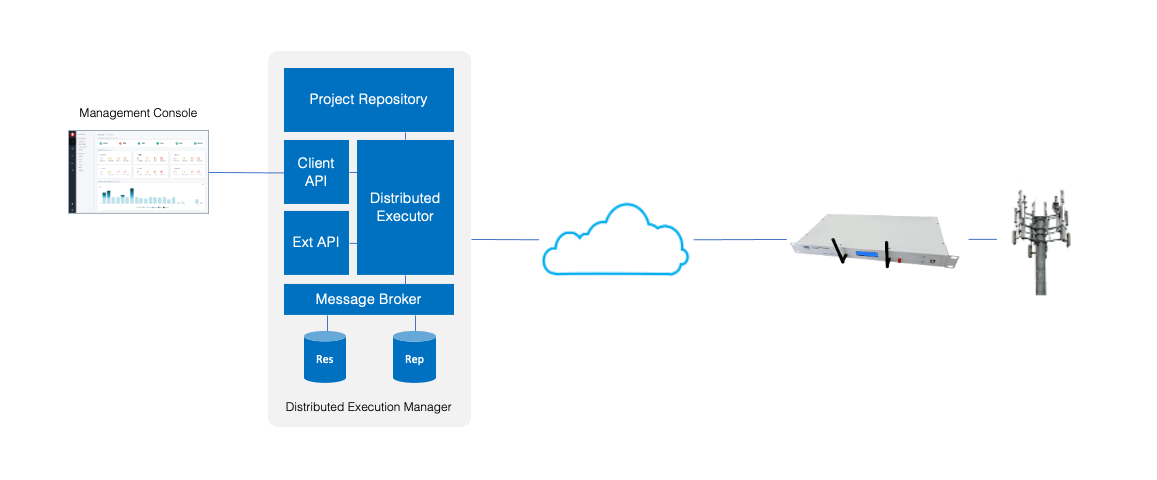Test Agents and Capabilities (RF, API, Web, Mobile)
In XGP, a test agent is a software or hardware component that can execute test cases against a certain application interface. These interfaces could be cell towers (RF), web apps, mobile apps, APIs etc. and different types of interfaces are called channels. Based on the type of interface to be interacted with, the Agent could be implemented in software, or in hardware.
Agents are placed in remote locations where they have access to the application interfaces that undergo testing. The Distributed Execution Manager pushes test projects into the agents and then sends necessary commands to trigger tests. Based on the need, a single test step, a test scenario or a complete test project can be triggered to be executed.

Once a test is triggered within the agent, it starts executing the test steps sequentially and once the test is completed, it sends an execution report back to the Execution Manager. In fact, agent sends results of each test step, so that the platform is informed about the state of execution in real time.
Types of Agents and Their Capabilities
There are different types of agents interacting with different application interfaces, providing different capabilities
| Agent Type | Implementation | Placement | Capabilities |
|---|---|---|---|
| RF Agents (XG Devices) | Hardware | Cell Deployment | 2G/3G/4G/5G/IoT Services Testing |
| HTTP Agents | Software | Cloud or Local Network | Web UI Automation, API Automation |
| Mobile Agents | Hardware | Mobile Network | App Testing, UE Capability Testing |
RF Agents (XG Devices)
RF Agents aka XG Devices are purpose-built hardware devices that interact with cellular services and contain an implementation of a python-based test agent. Which means, all cellular infrastructure interaction capabilities can be fully scripted and automated with these agents. The capabilities of these agents may vary from the GSM RF modules included in those devices. See XG Test Devices for a more in depth explanation.
HTTP Agents
HTTP Agents interact with web-based application interfaces such as Web Portals and REST APIs. HTTP Agent is a wrapper for CodeceptJS which is a JavaScript based lightweight web automation framework. CodeceptJS based automation projects can be natively executed in XGP.
Mobile App Agents
Mobile App Agents supports scripting and automation of mobile app testing as its name suggests. It is implemented as a wrapper for Appium which is a leading mobile app automation framework.
Why Different Agent Types
In an MNO environment there are lot of scenarios that cannot be simulated with just one of the above agent types due to heterogeneous systems. Also, there are certain cases which require a combination of agent types to test a given scenario (multi-channel tests). For example, an SIM can be provisioned using an API. Then a SMS is sent to the subscriber with a link to the user portal. The user connects to the web portal and checks the credit balance. To achieve this scenario both the HTTP Agent and RF Agent take part in the automation.
NEXT > XG Test Devices
